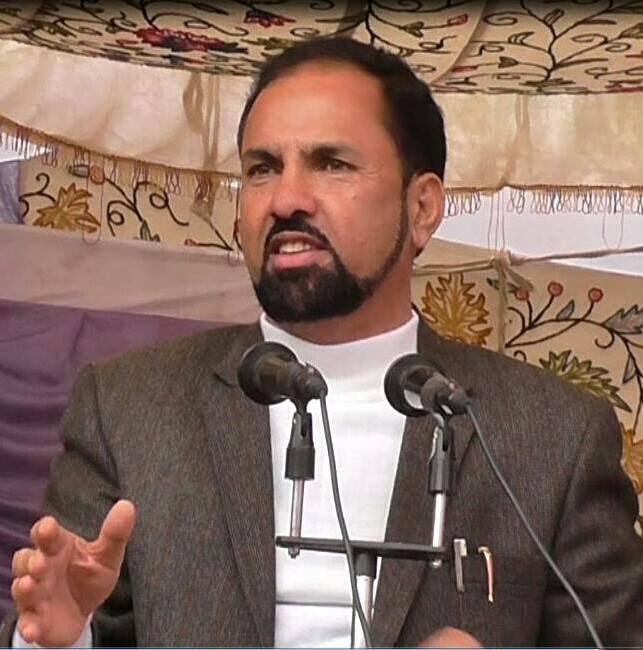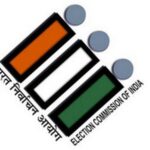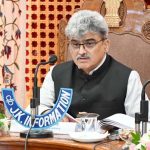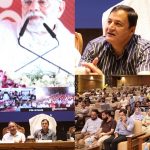Nazir Ahmad Laway, former Rajya Sabha MP and Peoples Conference candidate from Kulgam constituency in a candid conversation with Rising Kashmir, Reporter Younus Rashid discusses his political journey, the challenges faced by the people of his constituency, and his vision for its future. Laway opens up about his exit from PDP, his alignment with Sajad Lone’s PC, and his plans to transform Kulgam’s healthcare, education, and agricultural sectors.
Excerpts
RK: What reasons made you leave PDP and join the Peoples Conference? How does this align with your political beliefs?
Laway: Before I answer your question, let me clarify. I was a Member of Parliament in 2019, when I was expelled from the PDP for reasons best known to them. So, I didn’t leave the party.
However, I believe that whatever happened was for the betterment. In 2019, when most of the PDP leadership was detained, there was a leadership vacuum. The party’s affairs were managed by selfish, dishonest individuals who lacked integrity. They treated the party as their personal inheritance. Many senior leaders were expelled by self-styled leaders with no authority, which led to the humiliation of senior members and the party’s drift from Mufti Sahab’s vision.
During this time, I worked with Sajad Sahab’s Peoples Conference. I found him to be a leader who communicates straightforwardly and values clarity and honesty. This approach ensures transparency, minimizes misunderstandings, and builds trust. He addresses issues directly, without unnecessary drama or diplomacy. This kind of leadership is what Jammu & Kashmir needs today, which is why I joined his party.
RK: After the abrogation of Article 370, how do you see the role of regional parties?
Laway: The abrogation of Article 370 was a tragic moment in Kashmir’s political history. Our state was downgraded to a Union Territory. On August 4, 2019, when the bill to abrogate Article 370 was introduced in the Rajya Sabha, I was completely shaken. I protested against it to the best of my ability, and the record shows that. However, it was disheartening to see that none of the MPs from the National Conference protested against the bill.
I believe every political party in power since the 1950s has contributed to the erosion of Article 370. Today, Kashmiris are much more aware and won’t be swayed by empty slogans. The role of regional parties now should be a sincere and concerted effort to reclaim what has been taken from us. Among these parties, I believe only the Peoples Conference is addressing issues directly and with clarity.
RK: What key issues do you plan to address in Kulgam? How is your agenda different from other candidates?
Laway: Our party has already released its election manifesto, which outlines the larger issues we aim to address if we come to power. However, in Kulgam, there are specific issues that need urgent attention. My focus is on education and healthcare. I want to establish a university in Kulgam to provide top-quality professional education to our children. We also have hundreds of lecturer vacancies that have been left unfilled for years, causing our students to suffer. Another pressing issue is drug addiction, which I aim to eradicate by establishing institutions for skill development so that our youth can become self-reliant and not depend solely on government jobs.
Our health sector in Kulgam is also in dire need of improvement. Additionally, we have many widows and orphans who have suffered due to the Kashmir imbroglio. I want to introduce a dedicated scheme for their upliftment. These are the kinds of issues that set my agenda apart.
RK: Kulgam District Hospital needs urgent upgrades. What will you do to ensure it gets modernized?
Laway: It has been more than sixteen years since Kulgam was made a district, but our healthcare infrastructure is still lacking. Ironically, our hospital is still a Sub-District Hospital. During my time as an MP, I established a dialysis center and a laparoscopy section at the hospital using my MPLAD funds. I also allocated funds for a special electricity line for the hospital. Unfortunately, progress has stalled. The MCH block is fully constructed but not yet functional, forcing our women to travel long distances to Srinagar for treatment. We don’t have an MRI machine or specialized doctors like cardiologists and pathologists. Senior doctors are not available during night hours. When I was MP, I conducted surprise evening visits to the hospital to ensure senior doctors were available. If elected, I will prioritize overhauling our healthcare system and ensuring that the hospital operates at its full potential.
RK: Kulgam has significant agricultural potential. How will you support local farmers and boost agricultural development in the region?
Laway: Kulgam is a pivotal hub for horticulture and agriculture. While the government has introduced several schemes in this sector, recent natural disasters like hailstorms and high winds have devastated our farmers. There’s an urgent need for a comprehensive crop insurance policy. Just as health insurance has been a lifeline for many patients, crop insurance can be a safeguard for our farmers.
Another issue is the prevalence of spurious drugs in the market, which I have raised in and outside Parliament. We need a stringent law to tackle this problem and hold those involved accountable. Without addressing these critical issues, our farmers will not fully benefit from their hard work.
RK: What are your plans for Kulgam’s development in education, healthcare, and employment?
Laway: As I mentioned earlier, education and healthcare are my top priorities. To further develop Kulgam, I propose strategic approaches such as investing in schools to ensure modern facilities, including digital learning tools and libraries. We need to establish vocational training centers, scholarship programs, and initiatives to support underprivileged students, ensuring equal access to quality education.
In healthcare, I plan to upgrade existing facilities and build new ones to ensure access to specialized care. By focusing on education, healthcare, and employment, Kulgam can achieve sustainable economic growth and improve the overall quality of life.
RK: How do you plan to engage the youth and address their concerns?
Laway: The youth in Kashmir face unique socio-economic and political challenges, including unemployment, inadequate educational infrastructure, and mental health issues. Our party has specific strategies to engage them in the development process and address these concerns. We plan to actively involve youth in policy decisions, and as you may have noticed, our party is largely youth-driven.
Drug addiction is a serious issue affecting our youth, and we are determined to eradicate this menace. We aim to empower the youth, foster their growth, and build a brighter future for Kashmir through collaborative efforts and targeted interventions.










